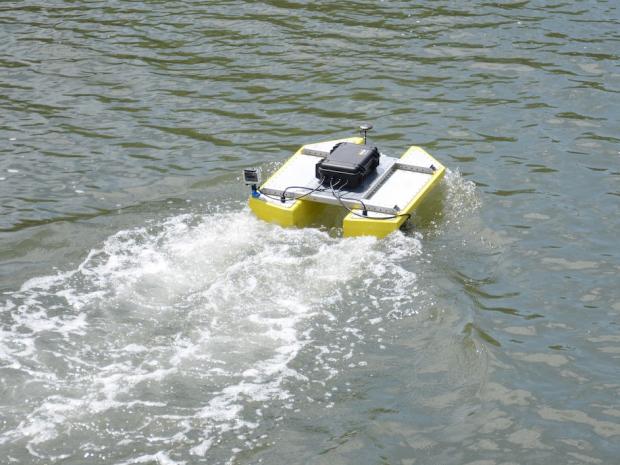Engineering Participants’ Motivation in Citizen Science for Environmental Monitoring

In recent years, we have witnessed rapid growth in citizen science, where the non-professional public engages in various research fields, such as ecology, structural biology, astronomy, and literature. In citizen science, researchers can economize time and effort to achieve scientific objectives by distributing micro-tasks of data collection and analysis to willing volunteers, and at the same time, participants can learn and feel satisfied through contribution to science. However, the success of citizen science projects are often challenged by low engagement and productivity. Toward exploring a new citizen-science framework to solve this problem, we introduce Brooklyn Atlantis, a citizen science project for monitoring an environmental health of a highly polluted canal located in an urban area of New York City.
The project involves the design and development of an aquatic monitoring robot that takes pictures during navigation through the canal, and an online interface for citizen scientists to analyze the pictures. We conducted a series of experiments to investigate participants’ behavioral changes by focusing on various aspects in citizen science, such as type of contexts, type of devices, social interactions, and reward systems. Our results highlight importance of these aspects toward enhancing engagement and productivity. Further, we apply our knowledge of citizen science to tele-rehabilitation toward increasing motivation in tedious rehabilitation exercises at home. Overall, our results promise the possibility of engineering motivation in participatory activities toward eliciting desired behavioral changes.


